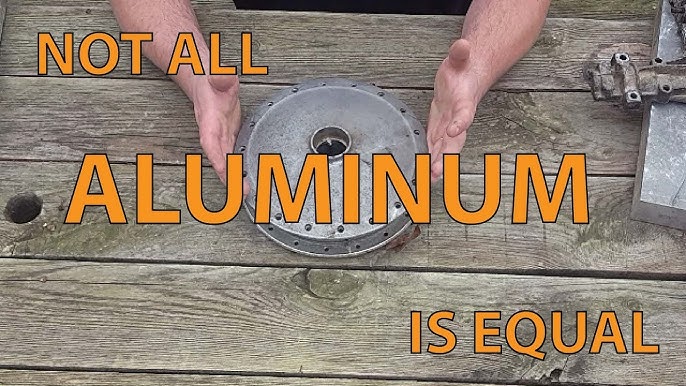The smart Trick of Alcast Company That Nobody is Talking About
The smart Trick of Alcast Company That Nobody is Talking About
Blog Article
Indicators on Alcast Company You Need To Know
Table of ContentsAlcast Company - The FactsThe 2-Minute Rule for Alcast CompanyThe 15-Second Trick For Alcast CompanySome Of Alcast CompanyAlcast Company for BeginnersThe 2-Minute Rule for Alcast Company
The subtle difference hinges on the chemical web content. Chemical Contrast of Cast Light weight aluminum Alloys Silicon advertises castability by reducing the alloy's melting temperature and improving fluidity during spreading. It plays a vital function in enabling detailed mold and mildews to be loaded properly. In addition, silicon adds to the alloy's stamina and use resistance, making it important in applications where sturdiness is critical, such as auto components and engine parts.It additionally enhances the machinability of the alloy, making it much easier to process into ended up items. In this way, iron adds to the overall workability of aluminum alloys.
Manganese contributes to the toughness of aluminum alloys and improves workability (Aluminum Casting). It is generally used in wrought light weight aluminum products like sheets, extrusions, and profiles. The presence of manganese help in the alloy's formability and resistance to cracking during manufacture processes. Magnesium is a light-weight element that provides strength and effect resistance to aluminum alloys.
A Biased View of Alcast Company
It allows the production of lightweight elements with excellent mechanical homes. Zinc improves the castability of aluminum alloys and helps control the solidification procedure during casting. It improves the alloy's strength and solidity. It is frequently found in applications where elaborate forms and great information are needed, such as attractive spreadings and specific automotive parts.

The key thermal conductivity, tensile toughness, return toughness, and prolongation vary. Select suitable basic materials according to the performance of the target item generated. Amongst the above alloys, A356 has the greatest thermal conductivity, and A380 and ADC12 have the cheapest. The tensile limitation is the contrary. A360 has the most effective yield strength and the highest elongation rate.
8 Easy Facts About Alcast Company Described

In accuracy spreading, 6063 is appropriate for applications where detailed geometries and high-quality surface coatings are paramount. Instances consist of telecommunication rooms, where the alloy's premium formability allows for streamlined and visually pleasing designs while maintaining architectural honesty. In the Illumination Solutions market, precision-cast 6063 elements create classy and reliable lights fixtures that call for complex forms and great thermal performance.
The A360 shows remarkable prolongation, making it optimal for complex and thin-walled parts. In precision casting applications, A360 is fit for markets such as Customer Electronics, Telecommunication, and Power Devices.
The Definitive Guide to Alcast Company
Its unique buildings make A360 a useful option for precision spreading in these markets, improving product sturdiness and top quality. Aluminum alloy 380, or A380, is a widely made use of casting alloy with a number of distinctive characteristics. It offers exceptional castability, making it a perfect option for precision spreading. A380 exhibits excellent fluidness when molten, guaranteeing intricate and in-depth mold and mildews are properly reproduced.
In accuracy casting, light weight aluminum 413 radiates in the Consumer Electronics and Power Tools sectors. It's generally made use of to craft detailed elements like mobile phone housings, camera bodies, and power device housings. Its precision is impressive, with tight resistances as much as 0.01 mm, guaranteeing perfect item setting up. This alloy's exceptional corrosion resistance makes it a superb selection for outside applications, making certain resilient, sturdy products in the pointed out industries.
How Alcast Company can Save You Time, Stress, and Money.
The light weight aluminum alloy you select will substantially affect both the casting process and the buildings of the last item. Since of this, you should make your decision very carefully and take an informed approach.
Determining the most suitable light weight aluminum alloy for your application will suggest weighing a vast range of attributes. These comparative alloy characteristics adhere to the North American Die Spreading Association's standards, and we've divided them right into two groups. The first classification addresses alloy characteristics that impact the production procedure. The second covers features affecting the homes of the end product.
Some Known Facts About Alcast Company.
The alloy you select for die spreading straight affects a number of elements of the casting process, like how simple the alloy is to deal with and if it is susceptible to casting defects. Hot breaking, also referred to as solidification fracturing, is a typical die spreading defect for aluminum alloys that can lead to internal or surface-level splits or fractures.
Particular aluminum alloys are a lot more susceptible to hot breaking than others, and your option needs to consider this. An additional common issue found in the die casting of light weight aluminum is pass away soldering, which is when the cast stays with the die walls and makes ejection difficult. It can harm both the actors and the die, so you must try to find alloys with high anti-soldering homes.
Deterioration resistance, which is already a significant quality of aluminum, can differ considerably from alloy to alloy and is a vital particular to think about depending on the ecological conditions your item will be revealed to (aluminum metal casting). Use resistance is an additional property generally looked for in light weight aluminum products and can separate some alloys
Report this page